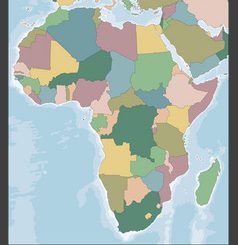My week started trying to understand Tanzanian Land Law and assist my former employer with boundaries on athe land where a classroom is to be built. The photos show the only beacon marker I found and that was at torchlight. The map is my clumsy way of trying to locate the beacon on Google maps.
Land in Tanzania is all leased from the government and there is no private ownership. It is usually a 99 year lease. Churches have acquired significant land over the years and just like in Rugby, if you don’t use it you lose it.
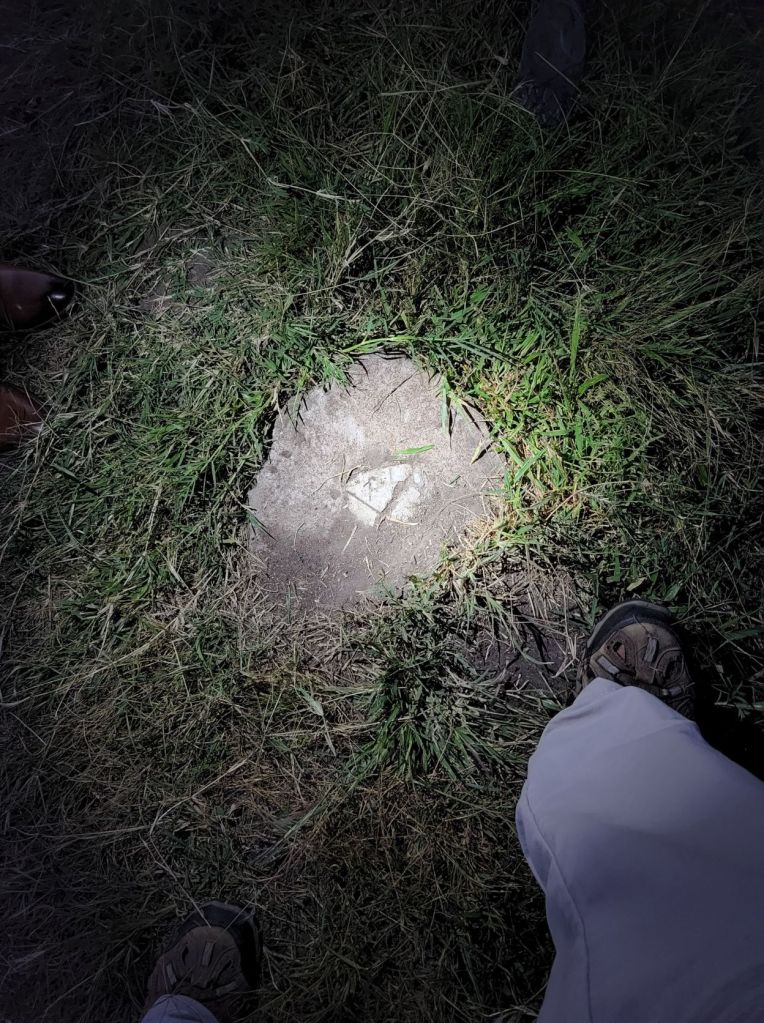
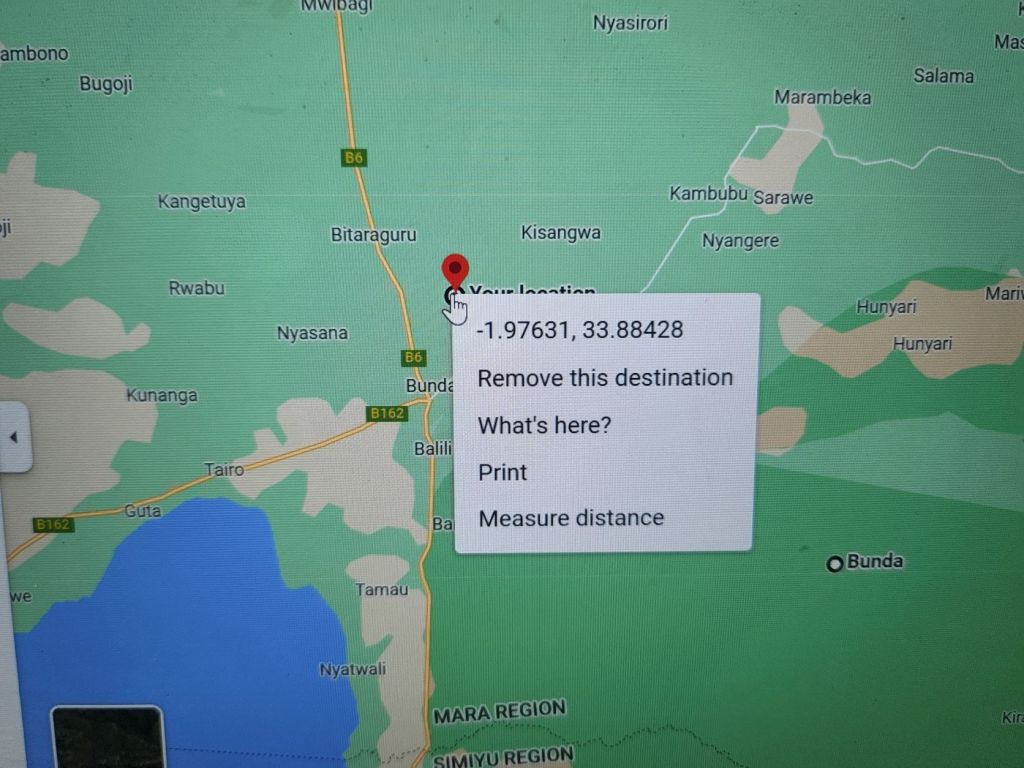
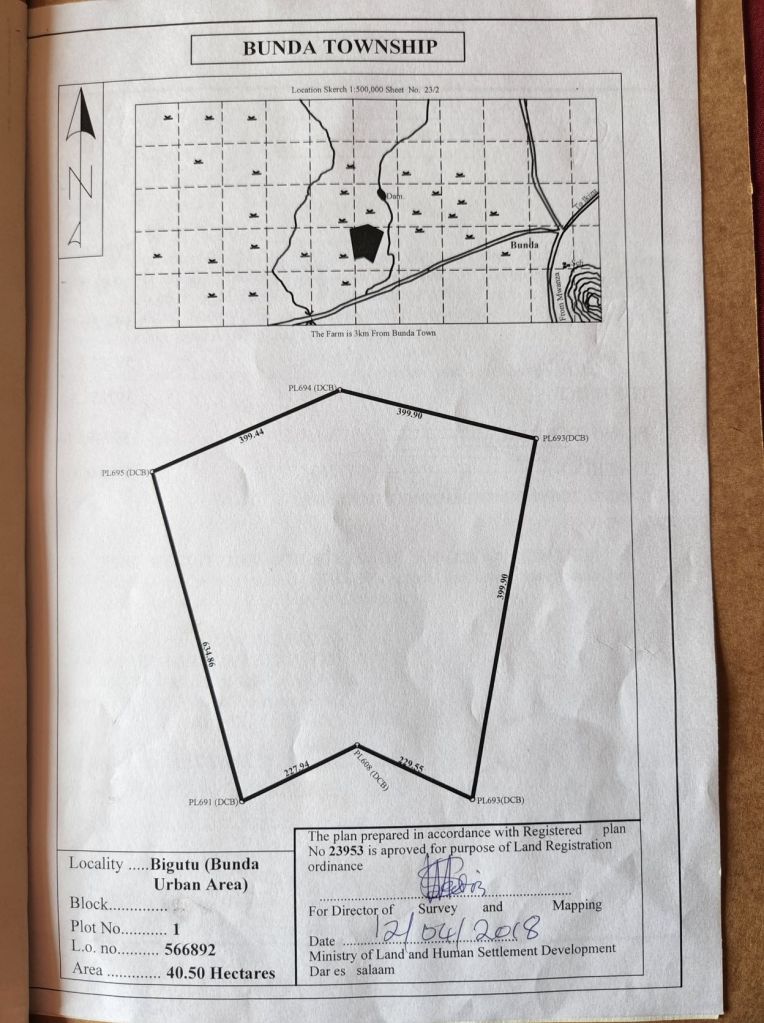
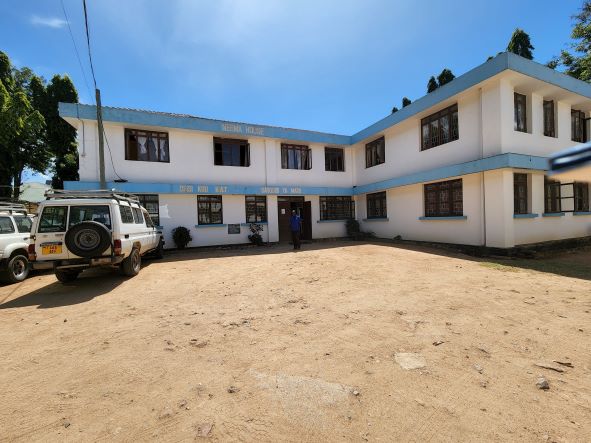
I finally learned about time here. The standard clock is fine if you have a clock. In the villages, the sun is the clock so as people arrange things it is all down to the sun. 7am European time is 1 o’clock swahili time. So 3pm is 9 o’clock. Time is not exact so if people go to town from the villages they talk about a 10am appointment being at 3 o’clock. The Biblical parallel of Jesus breathing his last at the ninth hour makes sense now.
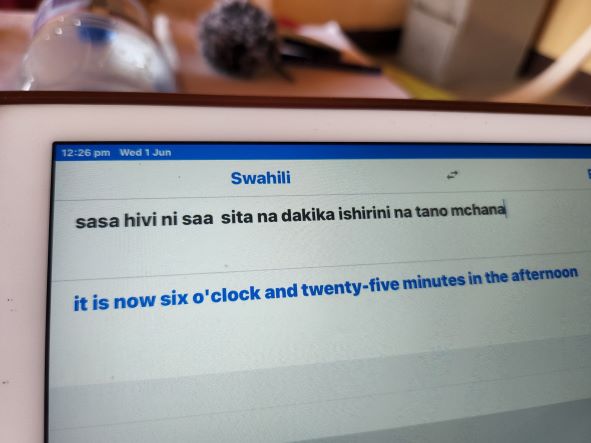
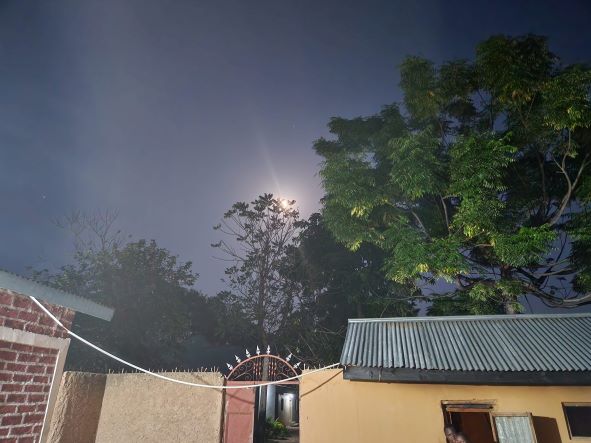
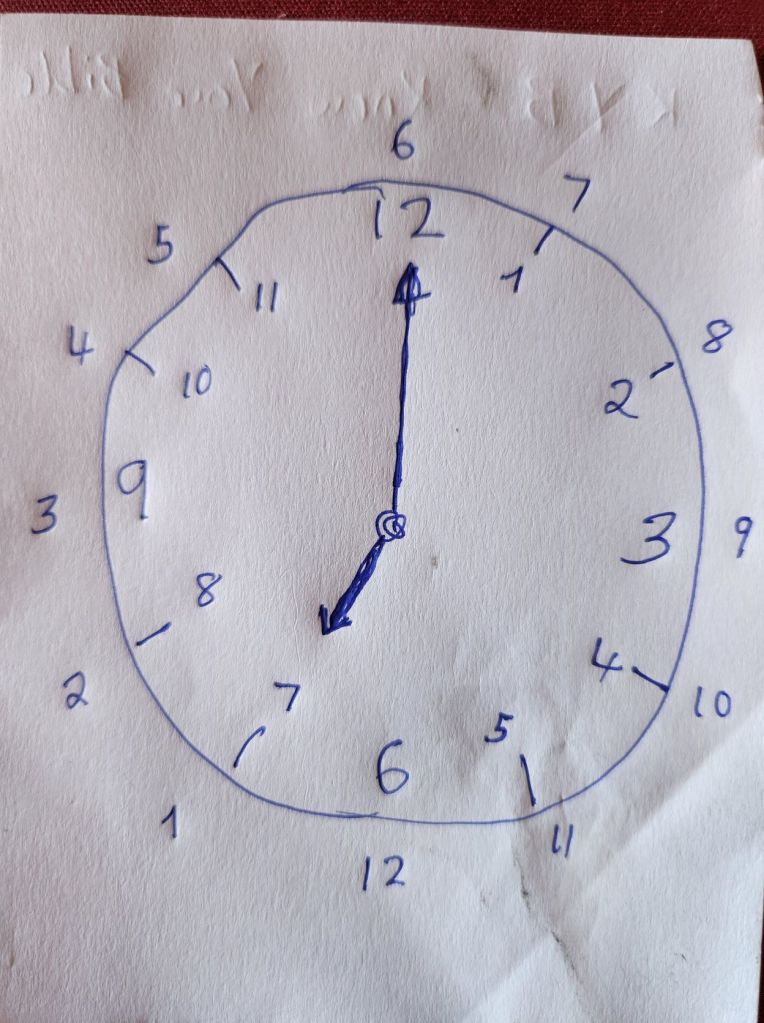
Thursday and Friday of that week was a trip to Bunda looking at boundaries for the college, the new building site and speaking to the builder to discuss the location of the building and future plans. I am not a conceptual person when it comes to these things so they were very patient with me as we looked at the plans and why the new classroom was being sited where it will go.
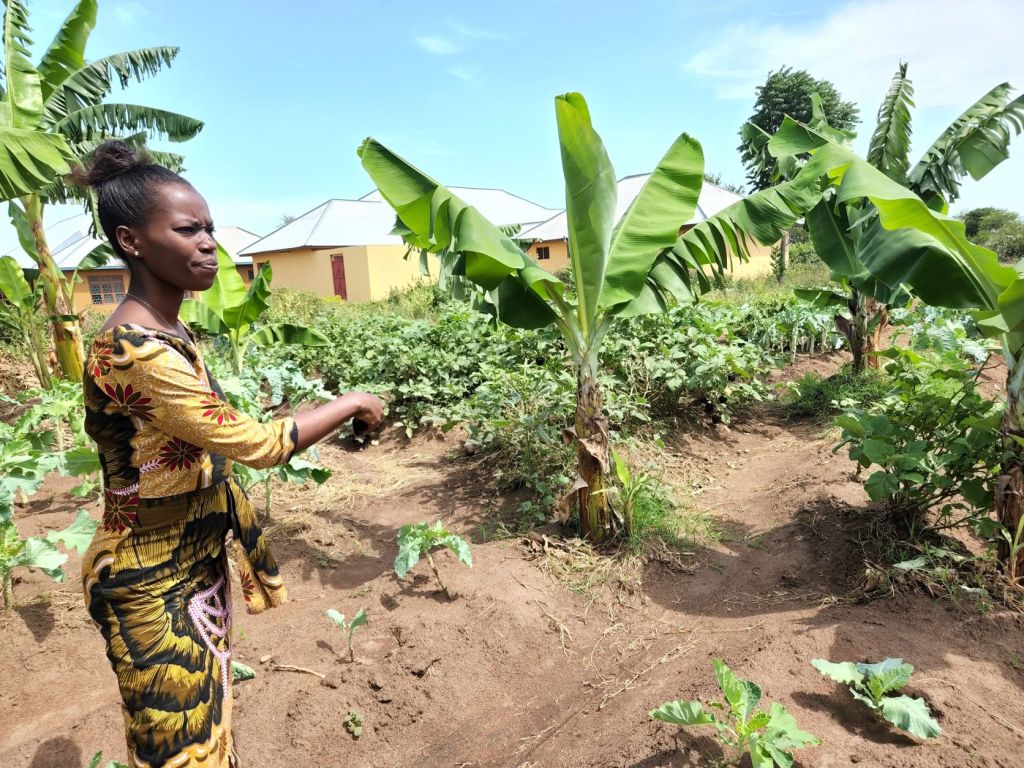

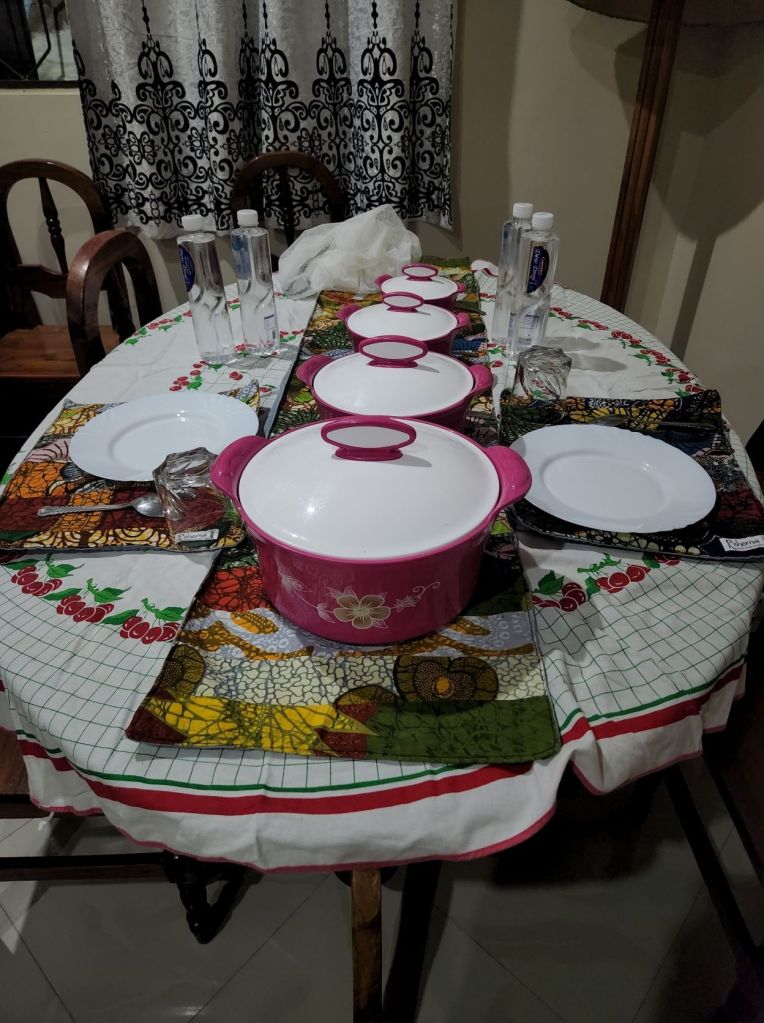
From BBC we went to Bunda Girls Secondary School a few minutes away. I have been involved in this construction since BGSS started in 2013. I spent time with the Principal going through plans ad what is needed to complete the school subject to funds being available. Again not being a reader of plans it took some time for me to “get it.” At least this provides a bit of a plan for the future. I couldn’t leave without being shown their magnificant garden which grows fruit and vegetables.
It was then back to BBC to speak to graduating external studies studets and that took three hours, covering a range of topics, but focussed a lot on supporting oneself as a village pastor in poor communities. Inevitably it means having some income or provision for supporting oneself by means of agriculture. The bishop expects churches to provide a minimum of 60,000 TZS monthly but many pastors do not even receive this. So farming, animal husbandry and chickens and in some cases women have skills such as hair braiding which may provide small amounts of income.
I swapped my chair and invited one of the women who had experience in Church and Community Based Process establishing village banks (not to be confused with westrn bans) that lend to each other to establish and grow businesses. The women in this meeting were really switched on and engaged.
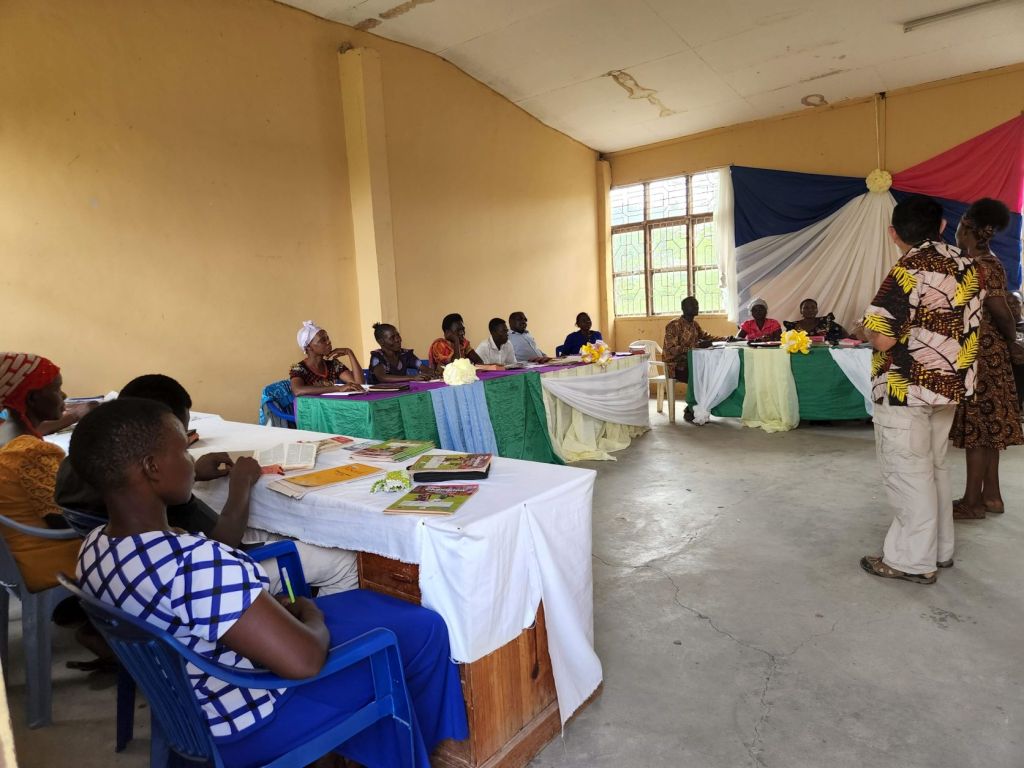
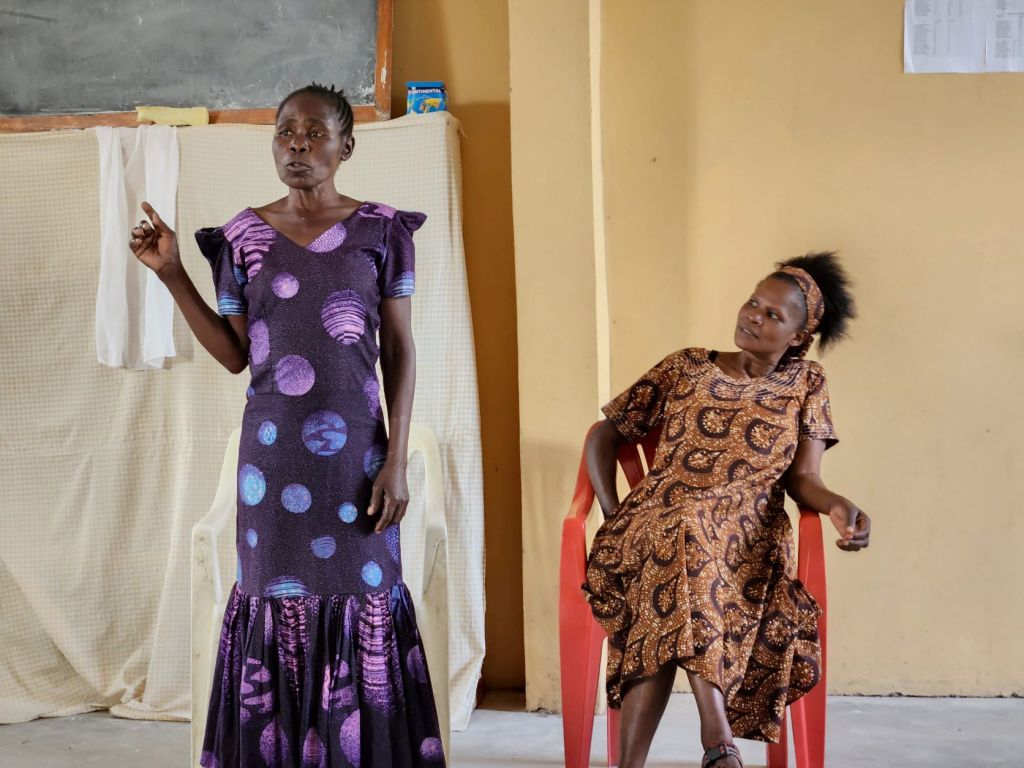
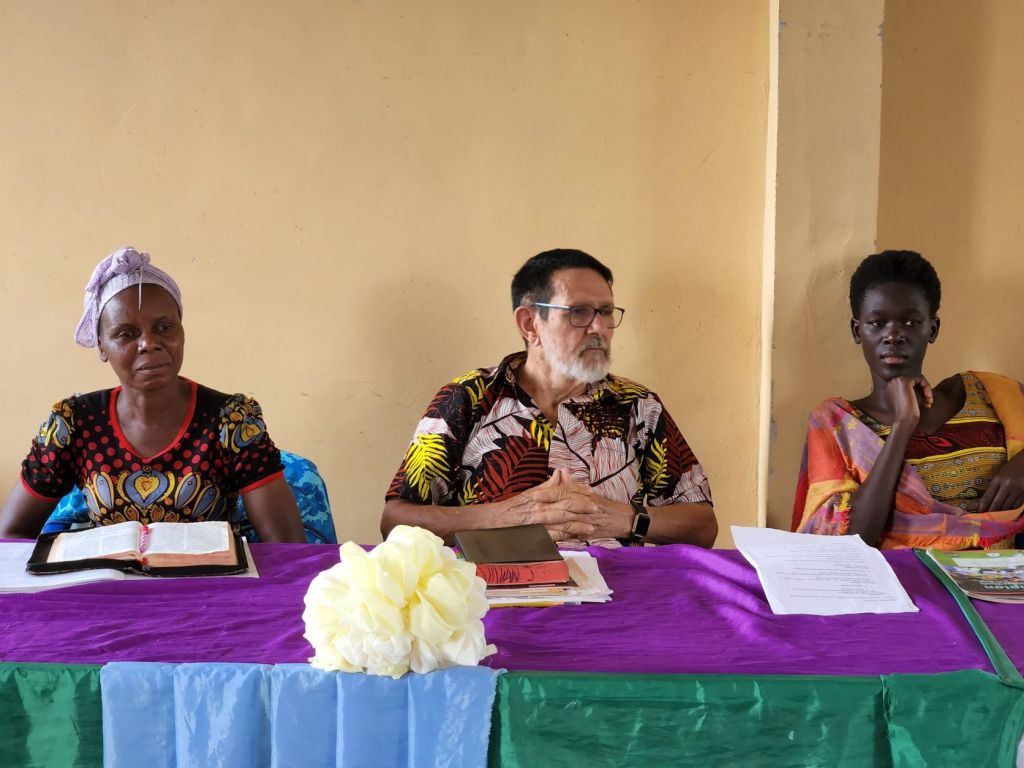
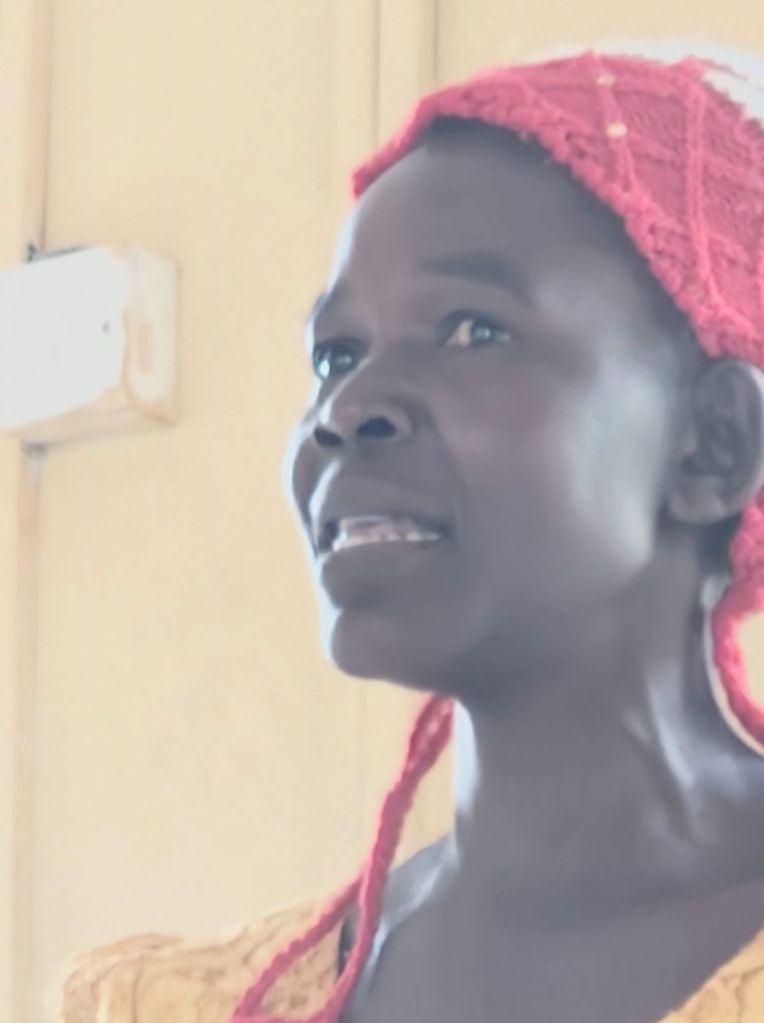
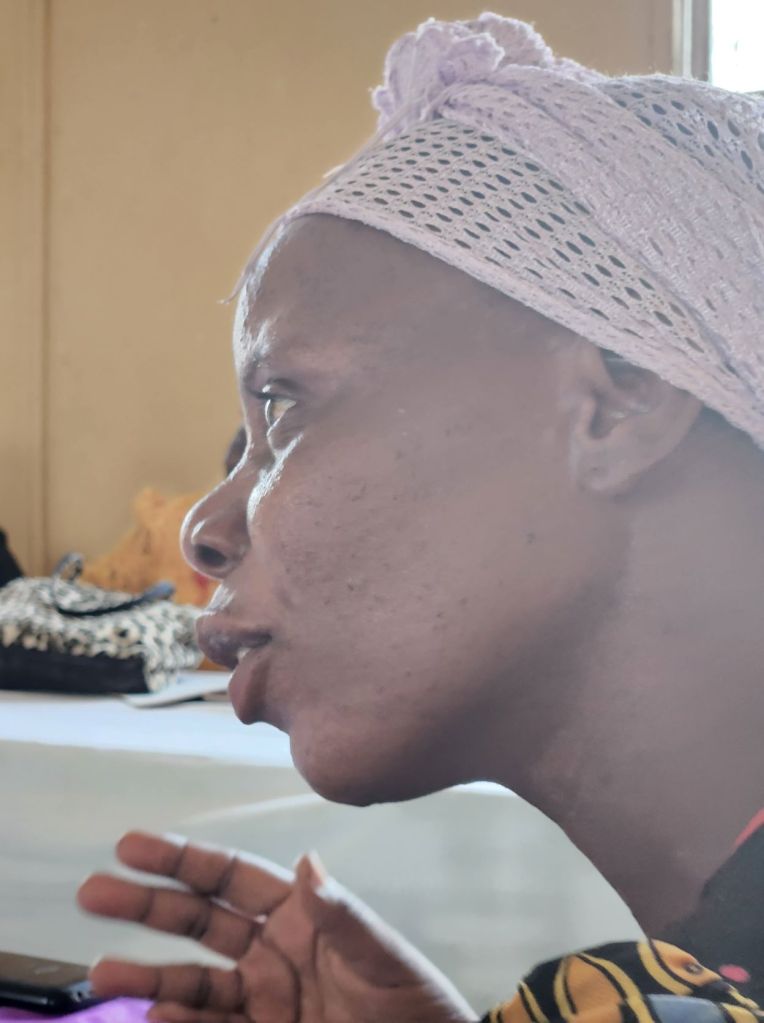
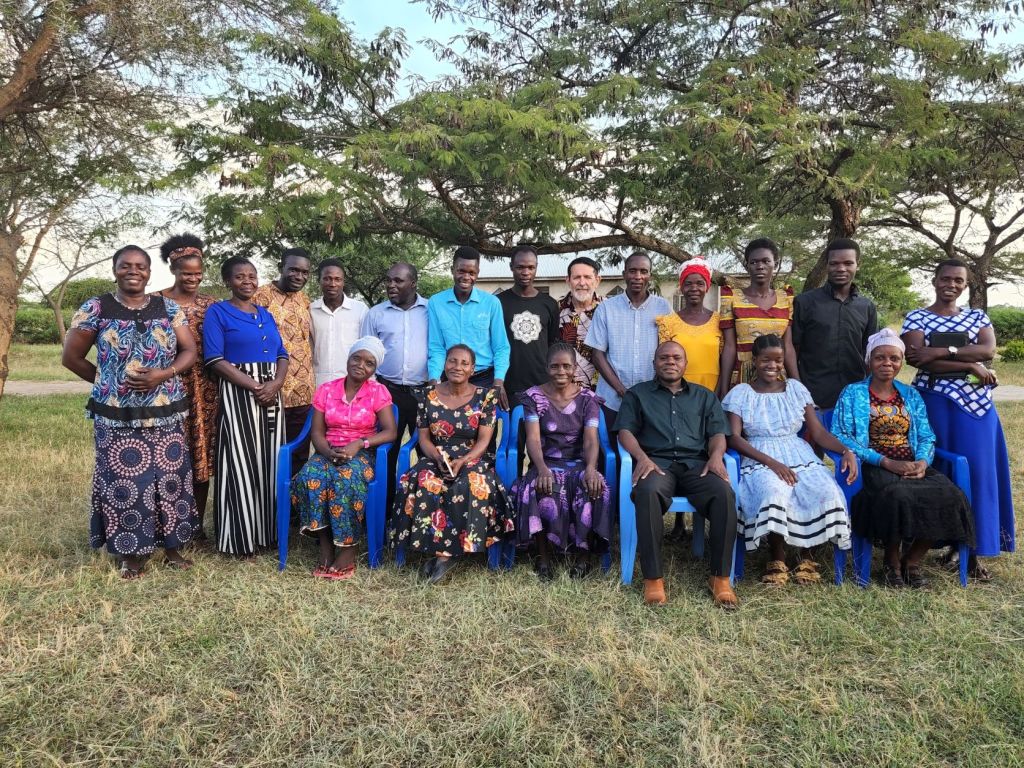
Then as dusk approached it was off to look for beacons. After giving up in the dark we went to the home of an Australian who has been in Australia since COVID and the picture tells what her cook prepared for us. 8pm for dinner and a long day.
Shalom Primary School commenced in 2017 and building has continued despite COVID. The buildings there are magnificent. We met the principal Beatrice and Juliana the deputy and site engineer as they are currently completing a classroom block and looked at the site of the Administration building due to start in August. Discussed need for staff accommodation and number of family units to be built. (Staff accommodation is an accepted condition over here for teachers). Also went and looked at the new Multipurpose Hall and kitchen. The kitchen is unused as no one want to use wood and charcoal and estroy this magnificant building. We discussed options including solar. Can we cook using electric solar powered stoves? Let me know if that is possible.
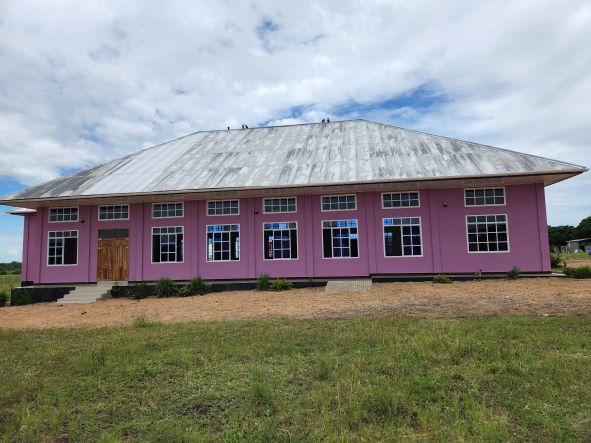
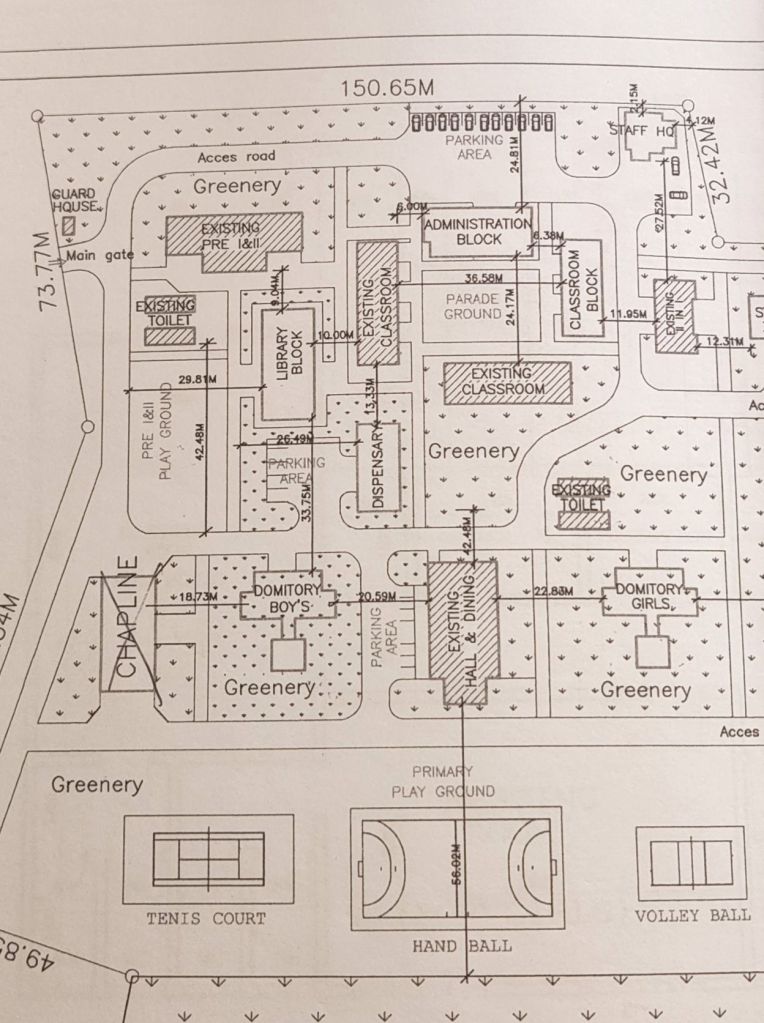
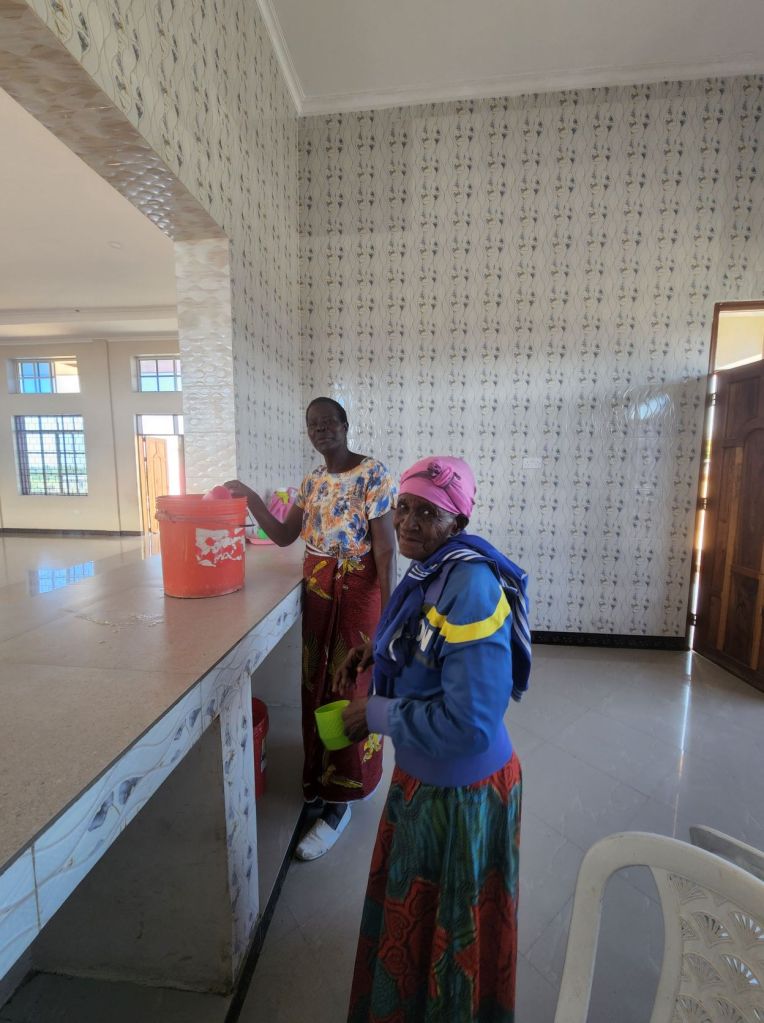
Afterwards we went and met the principal of the building company and discussed the future breiefly and asked for bills of quantity for the remaining buidings at BGSS and to see if 2023 might see its completion.
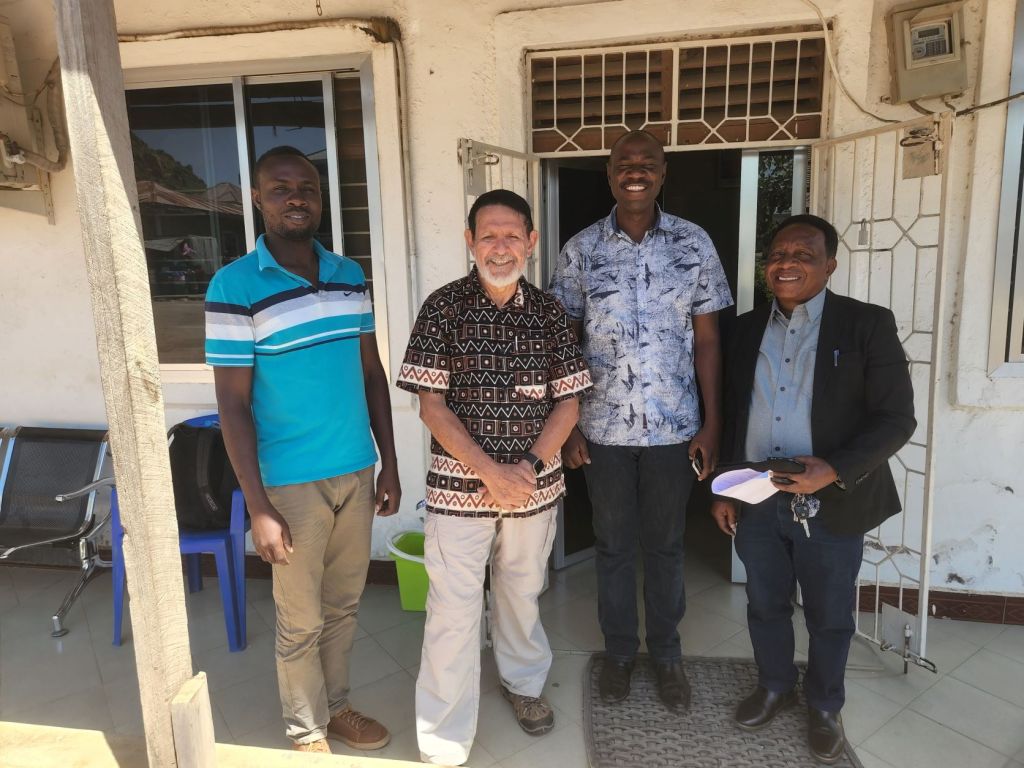
Then back to Musoma for a video meeting with a Disability provider across the lake which I had visited twice before to discuss the former disability program here in Mara and if it could be resurrected. A two hour meeting had interest shown as I shared photos of the buildings here and the Manager in Karagwe was interested to come and see for himslef after receiving a formal request on how this diocese proposed a disabilit program.
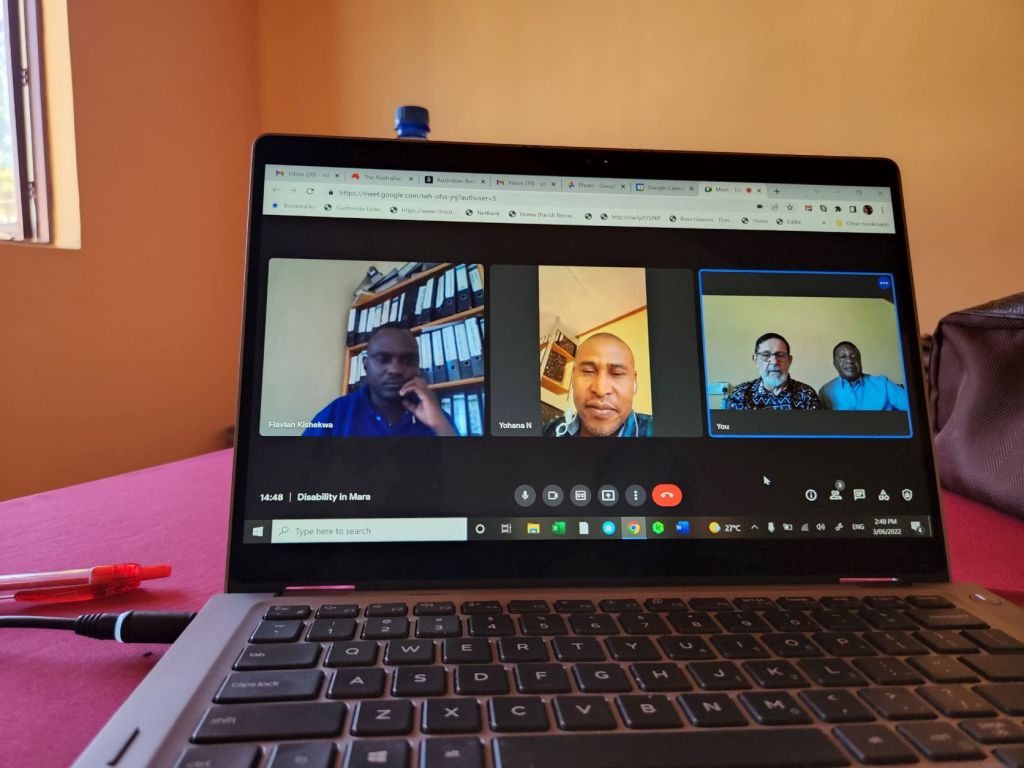
It ws then off to English Bible study where three Swahili speaking girls from the hostel and one male who comes regularly and speaks English turned up. It was a good session with the man interpreting for the girls. An hour turned into two and we left in darkness.
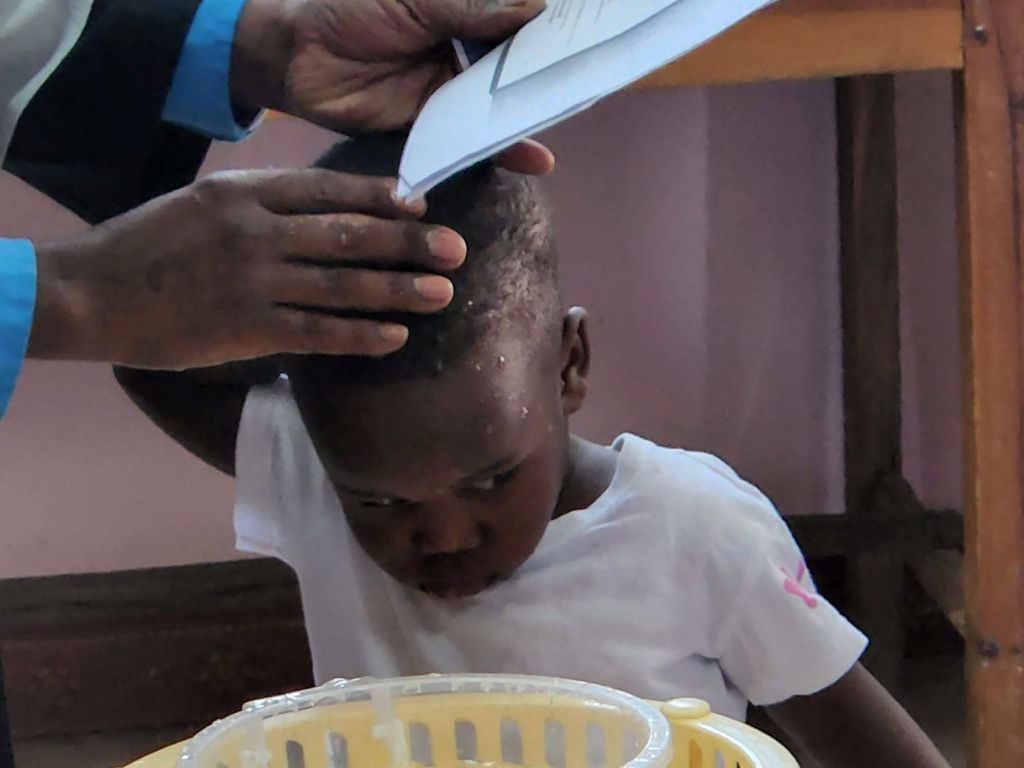
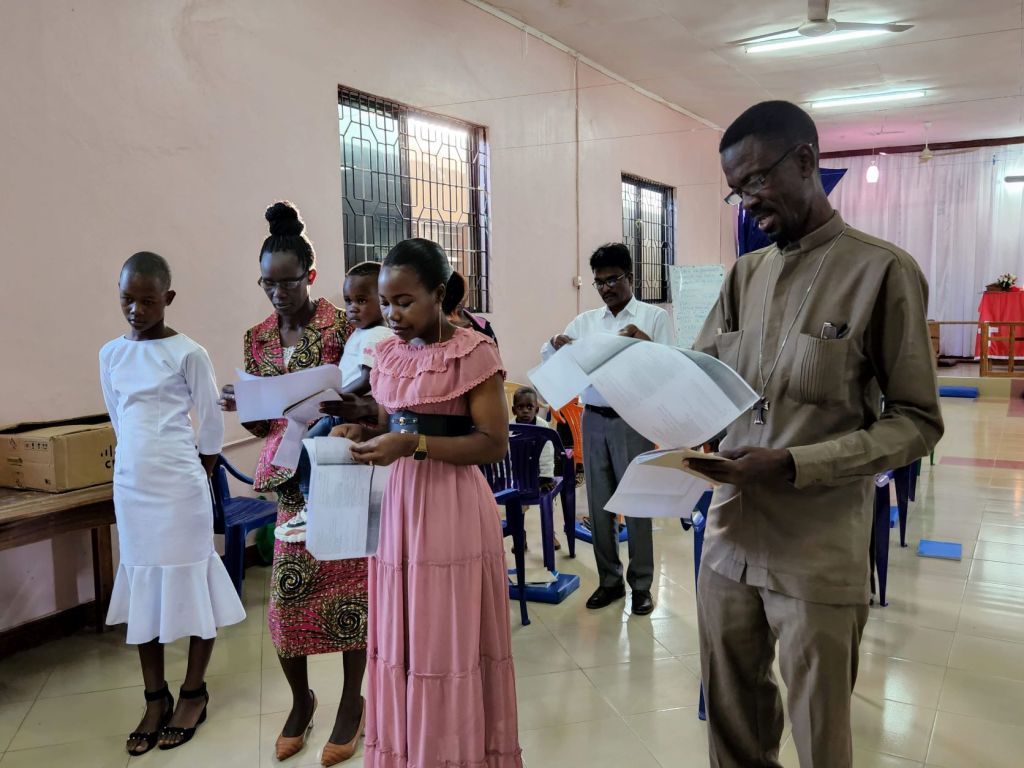
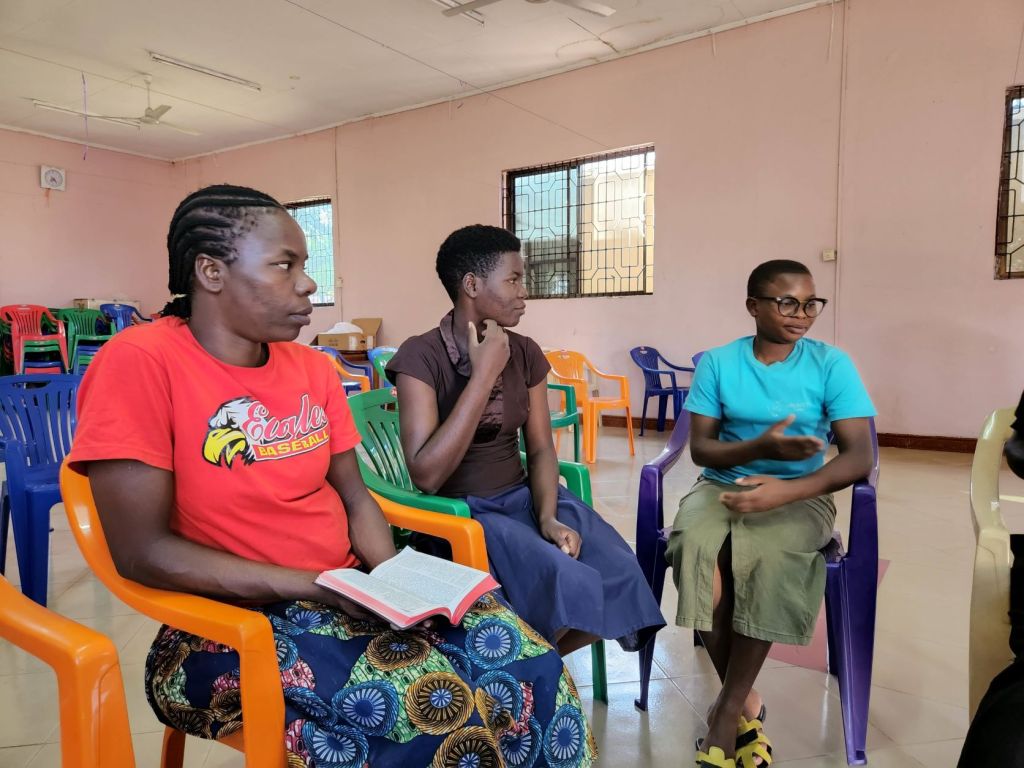
Sunday at the English congregation was a baptism service for two kids of a couple. The four year old looked pensive as the water flowed over his head. Note the baptismal font. Very kitsch.
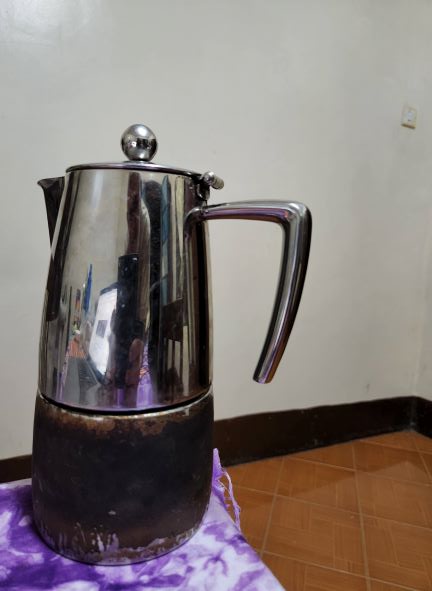
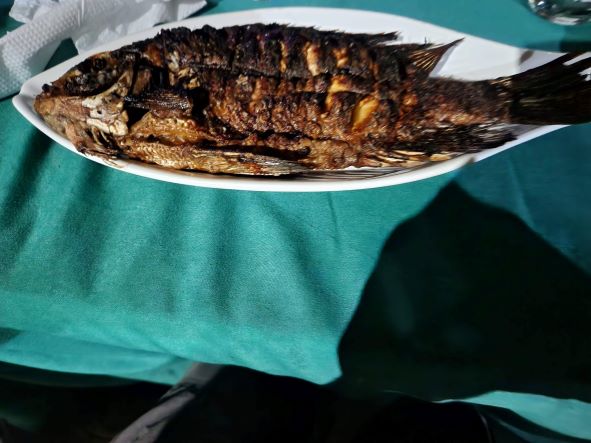

For the foodies life goes on foodwise. Real coffee to start the day, tilapia once or twice a week and the plate above is roasted tilapia and vegetables at home. Beans, greens, plantains and casserole beef and chicken are staples for people with reasonable incomes.
As always the work day starts with a morning prayer time in the cathedral attended by between 50-80 people. The first photo below is girls walking back to the sewing centre with a staff member from the diocese in a yellow dress.
After our meeting with the disability team across the lake we left Tuesday to visit a local disability centre about twenty minutes south. We spoke to the dean of the vocational college which is what this disability centre has become and Gabriel an orthpaedic specialist who makes all sorts of interesting prosthetics as the photo shows.
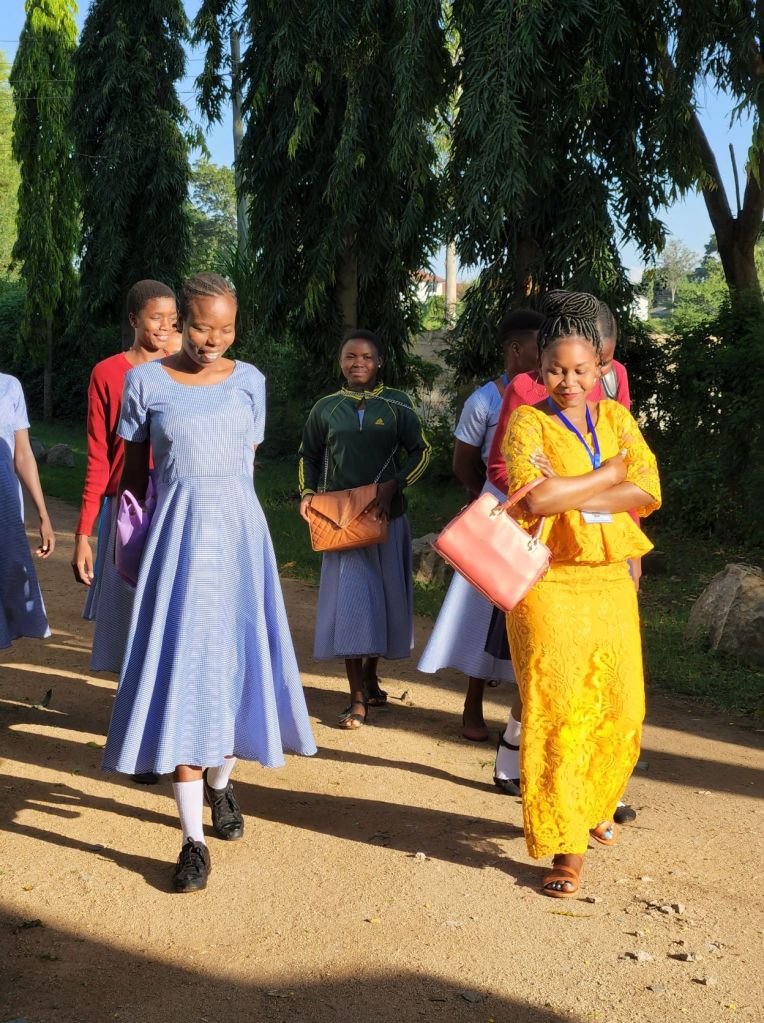

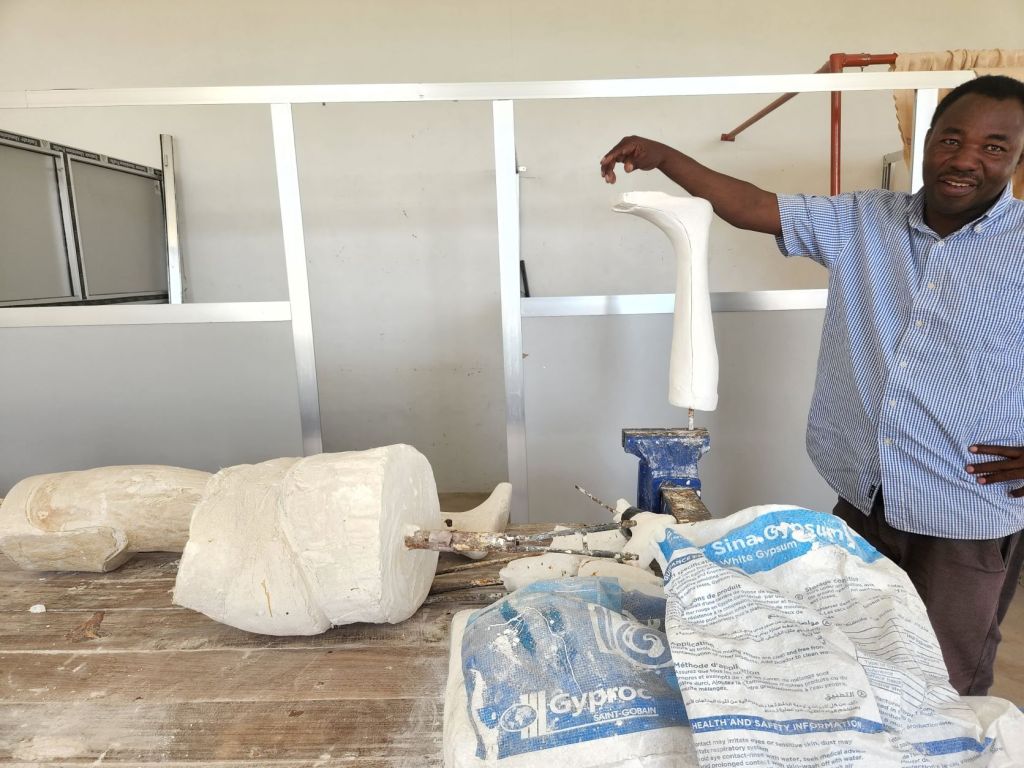
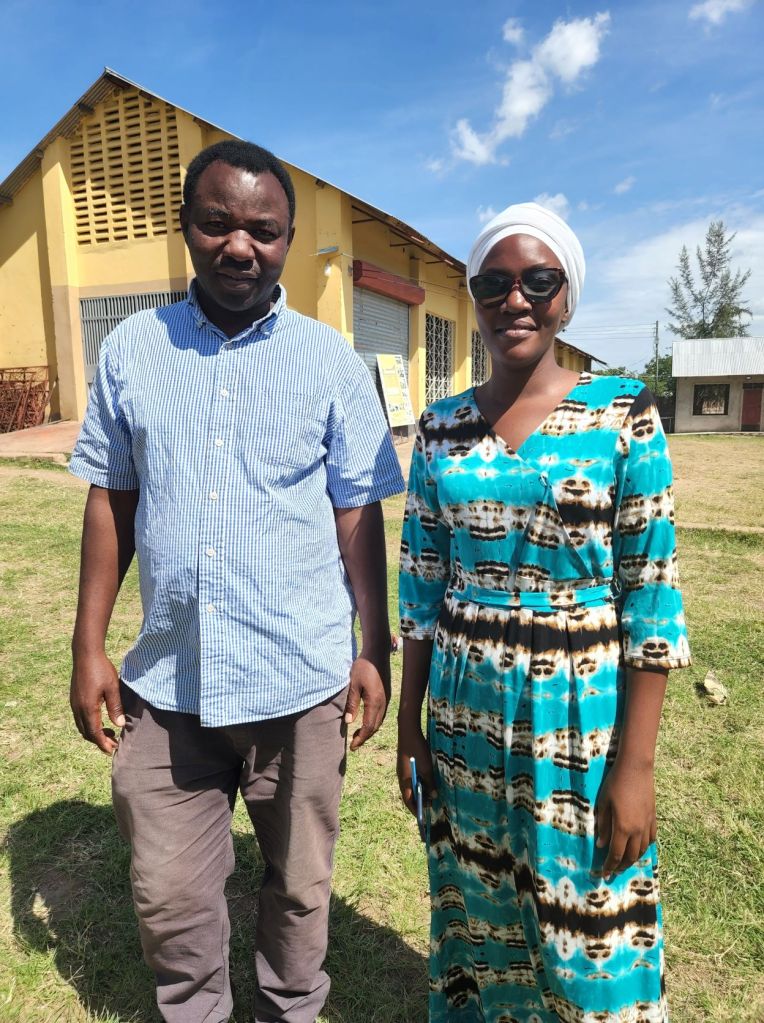

The photo of the stained teeth above is as a result of minerlaisation of the water in Mwanza. Apparently this is quite common amongst people living there.
After we were finished our meeting we swung by a new church school being constructed so Arthur could check on painting. The only teacher of this new school saw me waiting and asked me to come and greet her class of ten which is what the school opened with. They spoke fantatstic English and sang me a song. Very impressive.
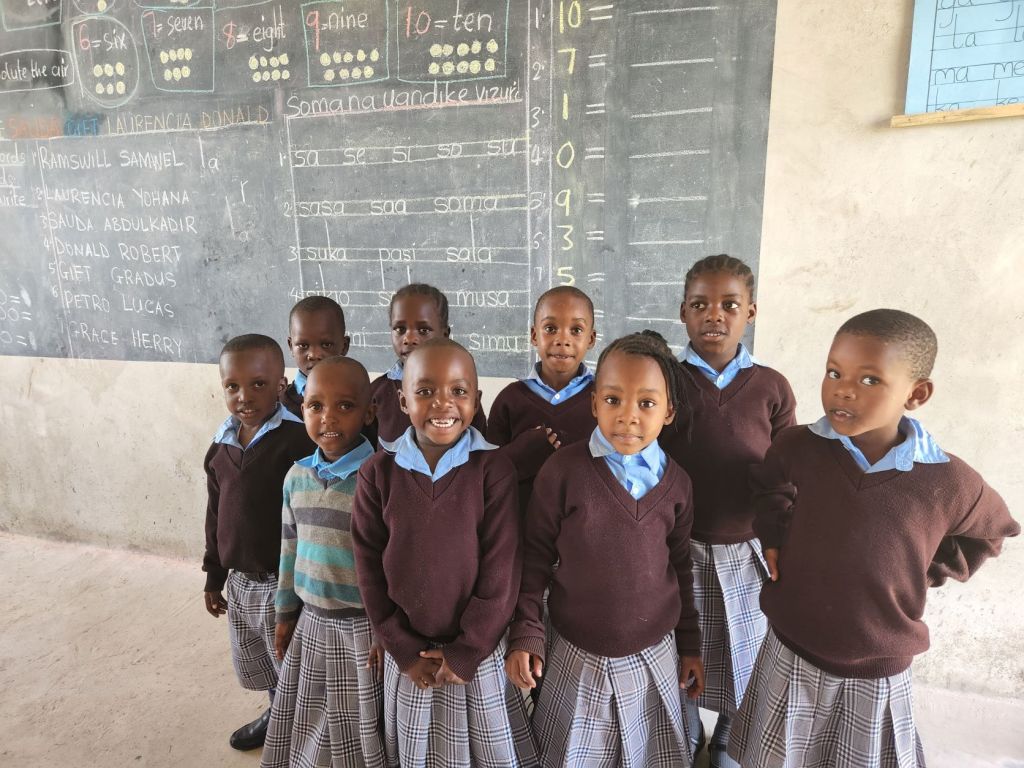
Wednesday I have been doing a Zoom meeting on retirement for the last six weeks. Last week this week with a group from Melbourne, Sydney, Tasmania and Qld. It has been interesting and thought provoking.
Thursday was my second strategic planning workshop. My aim is to have a draft of sorts by the time I leave in last September so getting input from a broad group is essential. This and the group next week are in English.
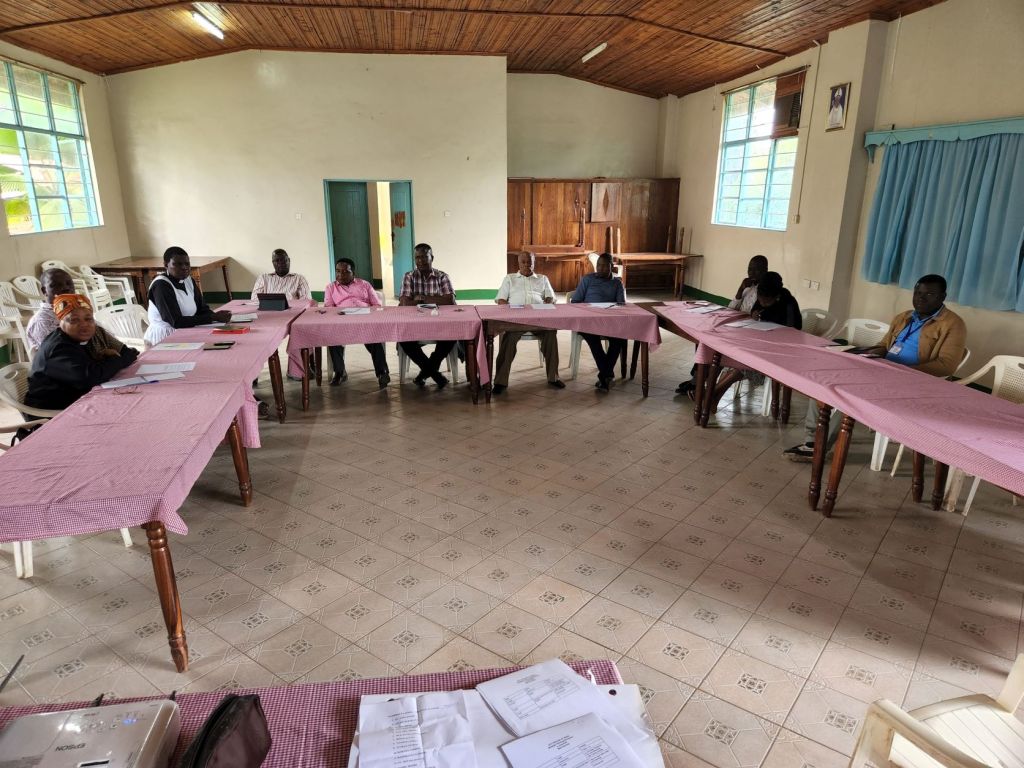
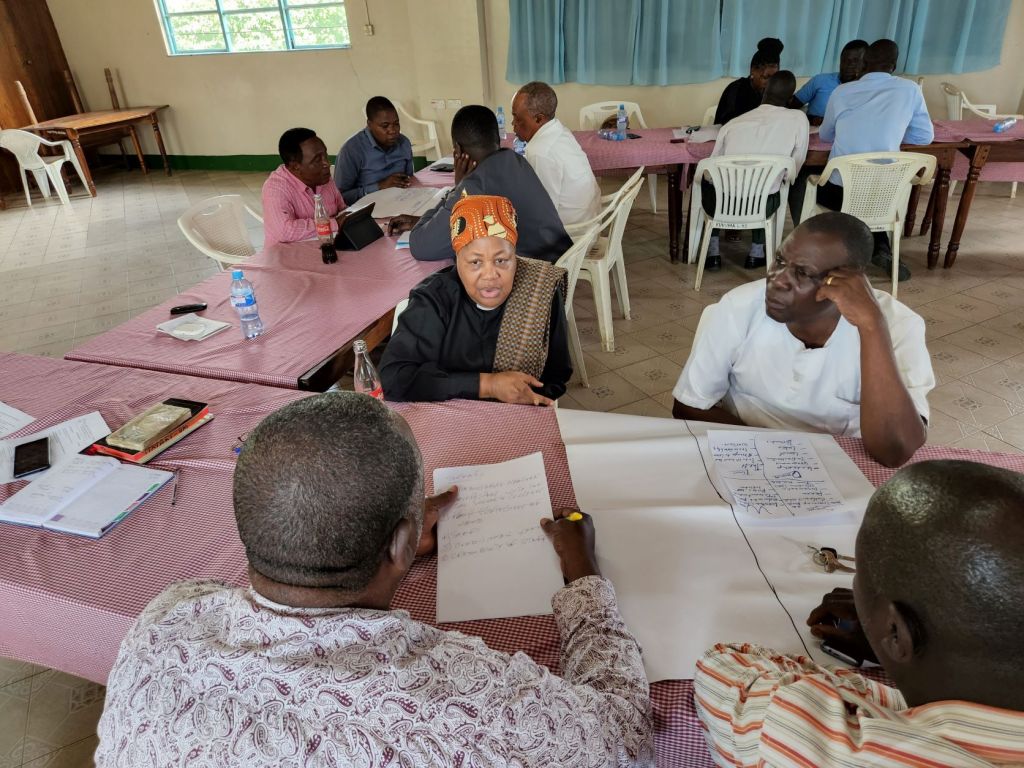
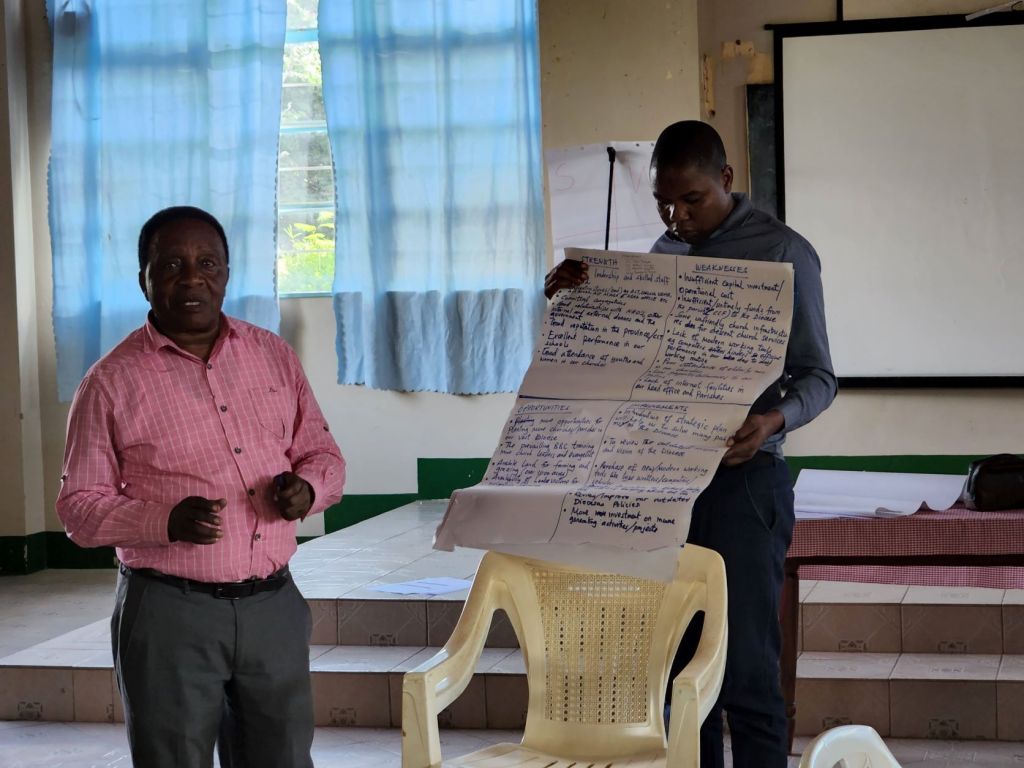
Friday was a rush getting things on the go done prior to leaving for Bunda where a groundbreaking service was being held for the new classroom at BBC. Rose is the cashier at a school and I saw her in the former auditor’s room as I wwent hunting some documents. She was doing some analysis of expenditure on a book I have never seen before. If any accounting people recognise I would like to know when last used in Australia. It does highlight how manual all things here are. I assume a PC program could spit that out in no time. But alas no computers. Or programs.
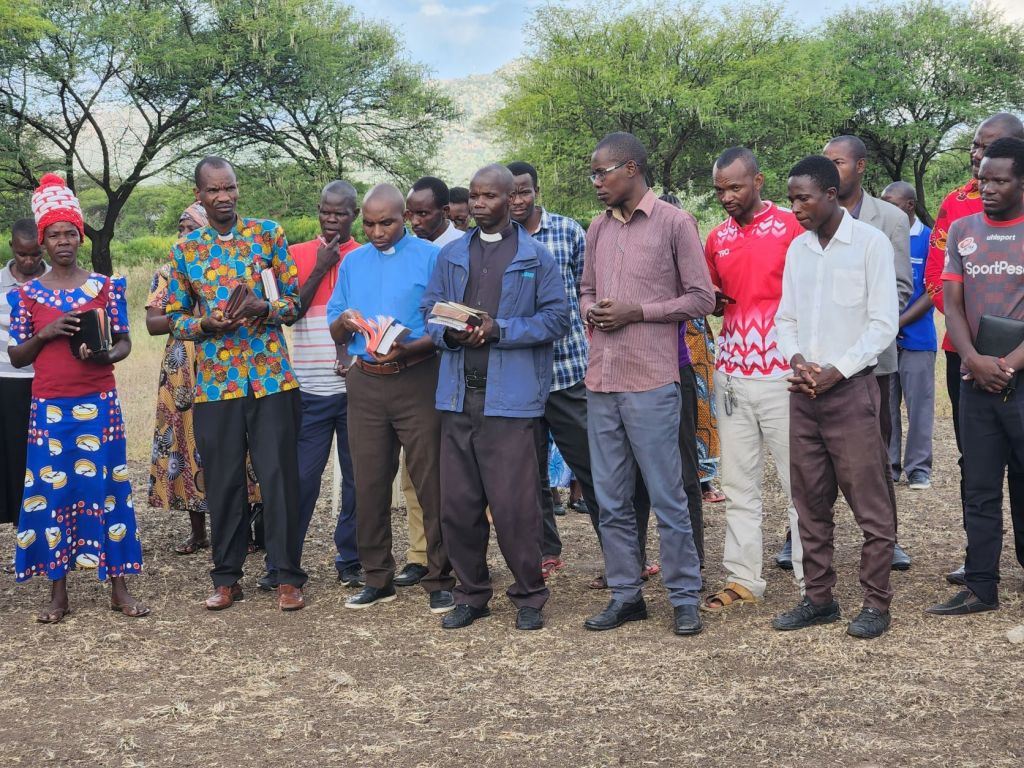

So to Saturday which was a big day at BBC and me as invited guest and speaker for the students’ graduation. That will need to wait.
